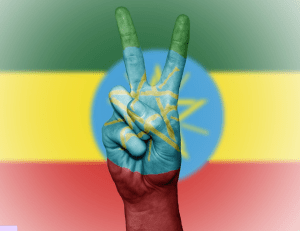The Age of the Explorers
The Age of the Explorers
In This Review

The first European visitors to Africa were content to make brief forays into well-fortified coastal settlements, but it wasn’t long before the thirst to discover (and exploit) the unknown interior took hold. Victorian heroes such as Richard Burton and John Speke captured the public imagination with the hair-raising tales from the East African interior, while Mungo Park and the formidable Mary Wesley battled their way through fever-ridden swamps, and avoided charging animals while ‘discovering’ various parts of West Africa. Most celebrated was a missionary–explorer David Livingstone, who was famously encountered by Henry Morton Stanley on the shores of Lake Tanganyika. Livingstone spent the best years of his life attempting to convert the ‘natives’ to Christianity and searching for the source of the Nile.
Colonialism
Hot on the heels of the 19th-century explorers came the representatives of European powers, who began the infamous ‘scramble for Africa’, vying with each other to exploit real or imagined resources for their sovereigns, and demarcating random and unlikely national borders that still remain to this day. At the Berlin Conference of 1884–85, most of Africa was split neatly into colonies. France and Britain got the biggest swathes, with Germany, Portugal, Italy, Spain, and Belgium picking up bits and pieces.
The Fact Behind Whether a Native American Government Encouraged the US Constitution (Part1)
Forced labour, heavy taxation, and swift and vengeful violence for any insurrection were all characteristics of the colonial administrations. African territories were essentially organized to extract cheap cash crops and natural resources for use by the colonial powers. To facilitate easy administration, tribal differences and rivalries were exploited to the full, and Africans who refused to assimilate to the culture of their overlords were kept out of the market economy and the education system. Industrial development and social welfare were rarely high on the colonialists’ agenda, and the effects of the colonial years, which in some cases only ended a few decades ago, continue to leave their mark on the continent.


